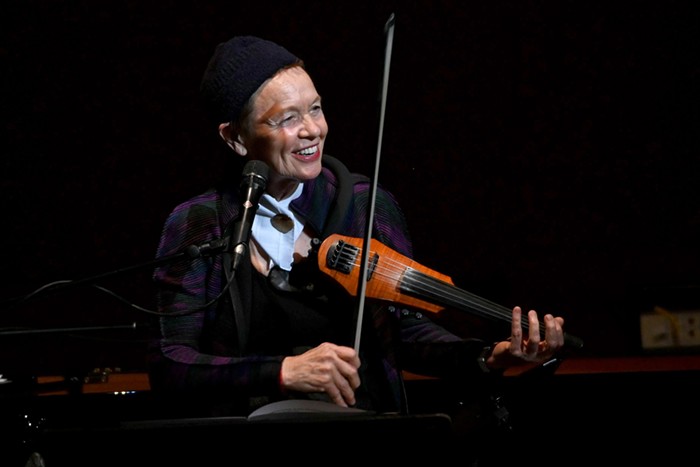Alynda Segarra left her hometown of New York City at just 17, driven by an urge to explore the world. But as she busked with fellow gutter punks and hopped freight trains across the country, she felt a nagging desire to belong. On The Navigator—Segarra’s latest as Hurray for the Riff Raff—listeners follow the story of Navita, the album’s teenage protagonist, who embarks on a parallel journey of self-discovery.
“Since I didn’t feel like I belonged in anything,” Segarra explains over the phone, “I was like, ‘Okay, I’m just an island to myself. I come from nobody and I am my own person.’” When she decided to leave home for good, she recalls, “I thought that that was the ultimate act of rebellion. You hear so much about white men doing that—cutting all ties, leaving their family behind, and going off on the road. So [this] was my version of being the cowboy.”
For the past decade she’s played roots music under the Hurray for the Riff Raff moniker, refining her unique blend of Delta blues and Appalachian bluegrass. There are still elements of Americana, but on The Navigator Segarra pushes her sound into new territory where the roots are all her own.
The album is largely inspired by her Puerto Rican ancestry, which is reflected in the introduction of bomba percussion and the rhythm of son, as well as lyrics about her frustration with the island’s ongoing colonization. When asked what inspired this bold exploration of her Nuyorican roots, Segarra says, “On a surface level, what happened was I left New Orleans. I went to Nashville because it’s a music town, and going there was truly the first time in my life where I was like, ‘Whoa, I’m not white.’”
To combat the culture shock, Segarra researched the history of Puerto Rico’s quest for independence, and discovered the revolutionary work of poets like Julia de Burgos and Pedro Pietri. Suddenly, everything clicked: “It started to make so much sense—like, ‘Wow, that’s why people wave the flag so much. Because it’s an act of defiance!’ And when I finally started to understand that... It made me feel like, ‘Wow, I make so much sense.’” This newfound self-assurance guides The Navigator, as Navita learns to embrace her heritage. It’s a directive to Segarra’s younger self, but also to other Latinxs.
Segarra says America’s current administration motivated her to get off the sidelines once and for all. She partners with Latinx activist organizations like Mijente to create resources and visibility, and The Navigator is charged with her message of resistance. On “Pa’lante”—Spanish shorthand for the act of moving forward, and the name of the Young Lords’ radical bilingual newspaper—her repetition of the phrase becomes a battle cry dripping with fury and fervor. “Rican Beach” is an energetic and soulful track about losing one’s homeland that ends with the promise of fighting until the end.
“When I play that song, I want to fight for undocumented people,” Segarra says. “I feel really fucking terrified of what’s going on... And in a more vague sense, it’s about making people feel seen.”
Though it’s sometimes daunting, she’s invigorated by the fight: “There’s a really amazing counterculture of Latinx kids who are getting together from all different backgrounds [and] are telling their stories,” Segarra says. “Our generation is so into being intersectional. We understand the idea of, ‘Oh your struggles are different than mine—we can fight together,’ like Audre Lorde taught us that. It’s really exciting.”


















